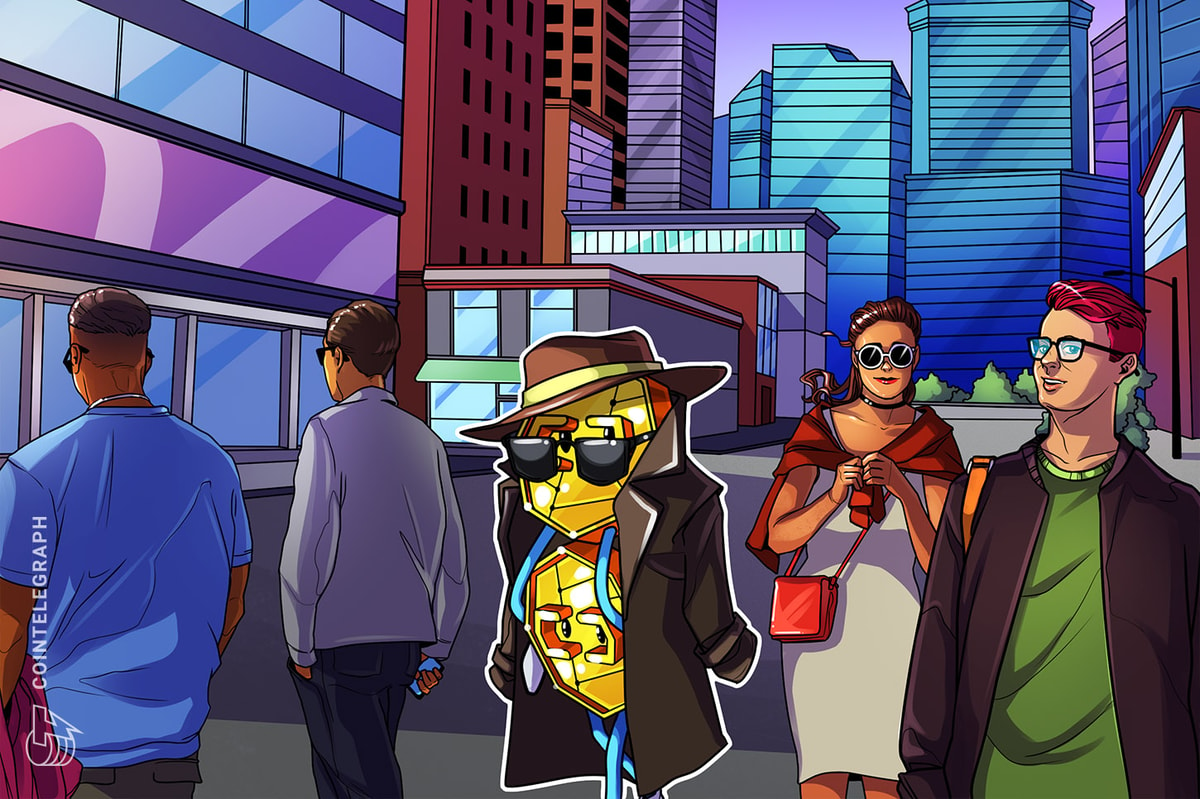

In Brief
Decentralized Autonomous Organizations (DAOs) promise a diverse community and transparency in the crypto industry, with 2024 being a significant year for achieving these promises.

Decentralized Autonomous Organizations (DAOs) arrived at the crypto scene with two major promises: One, to create a tight-knit community where users from all demographics can become more by actively influencing the platform’s direction, and two, offering full transparency and accountability for every move in the future.
Over the years, some DAOs have done better at delivering on these promises, particularly now in 2024, which has been a big year for the crypto industry as a whole.
Three Major Trends on the Horizon
The DAO space is constantly shifting and evolving, particularly regarding governance. Now, in 2024, three trends have emerged, capturing the attention of some existing DAOs in the market.
Separation of Token-only Powers
Since the beginning of DAOs, token-based governance has been the most common structure for many platforms. Here, members’ voting power is judged by their number of tokens; more tokens, more power.
However, many have started to understand the limitations of such a model, suggesting that voting power must be based on the member’s contribution to the community and reputation.
This is why some platforms like Optimism DAO have decided to separate the power between token holders and active contributors, creating a rather balanced approach to governance.
Treasury Funding Dilemma
The primary purpose of a DAO’s treasury is to fund activities, projects, and processes that help the community reach its objectives. These could include community events, advertisements, and general community incentives.
As market prices rise in anticipation of a possible bull market, DAO funds’ native tokens are growing in value. There is also a lot of conflict over who is entitled to the treasury funds.
Some say that groups with strong financial backing shouldn’t get these tokens. Instead, they are pushing for them to be given to participants without solid financial support.
Rage Quitting
Rage leaving is a big deal in the field right now. With this function, members may “fork” the DAO if they don’t agree with its choices; they can leave at any time and take their portion of the funds.
Members are strongly motivated to reach a consensus on ideas because they could lose funds and other members if they don’t. This feature motivates them to cooperate and helps hold the platform accountable.
However, some community members seem to abuse such powers. For example, Nouns DAO lost a great deal of community funding and support after being “forked” three times from September to November.
Many community members believe that rage quitting was simply an excuse for some users to cash out their funds as soon as possible.
Top 5 DAOs in Governance
Over the years, some DAOs have established a better reputation and hold more credit in the crypto community. Some of the biggest names are:
Uniswap
Many crypto traders use Uniswap, a famous decentralized trading system, to trade DeFi tokens automatically. It got to DAO status not long after its establishment.
UNI token holders can cast votes on issues relating to the budget, administration, and road map.
Any proposal on the platform has to go through two stages before approval: Consideration and Consensus:
- To enter the first stage, the proposal needs a minimum of 25,000 affirmative votes from UNI holders over two days.
- After that, it’s time for the 5-day consensus check window, where the proposal must get 50K yes votes to be authorized.
Sometimes, multiple parties may scheme together and decide to push bad-faith proposals for approval that will not serve the DAO platform in the long term. To avoid this issue, such proposals need a minimum of 40 million yes votes to go through.
Lido DAO
When it comes to L1 and L2 cryptocurrencies, Lido offers a secure protocol that supports the PoS mechanism, solving a long-standing liquidity problem that many other platforms face.
Through its voting process, the Lido DAO affects crucial aspects of the protocols for liquid staking. Within this DAO, voting rights are directly proportional, which means that the more LDO a person holds, the more power they have to make decisions.
Here’s the process at a glance:
- First, a proposal is submitted on the forum to receive community feedback. This usually lasts seven days.
- Second, it’s time for the 7-day Snapshot voting phase, where the quorum must at least equal 5% of the total LDO supply. This happens off-chain.
- Once the proposal goes through, it’ll be put to vote on the chain. Here, the platform uses Aragon for voting, with the same quorum threshold.
For approval, the “yes” votes must be over 50% of the tokens spent for voting.
There are also times when a proposal may constitute an emergency, which means that it’ll bypass the Snapshot process and head straight to on-chain voting without introduction on the forum.
Ape Foundation
ApeCoin is managed by the APE Foundation, which also helps with open and community-led government. The Foundation has an executive board whose only job is to keep an eye on the DAO’s decisions and an external team whose job is to make sure that the DAO’s decisions get to the execution phase.
The APE token gives you entry to the ApeCoin DAO, which decides how to spend funds, set governance guidelines, build connections, and handle other ecosystem-related issues.
The APE Foundation’s executive body, called the “Board,” carries out the DAO’s decisions by handling daily tasks that are important for the community’s growth. Members who own tokens can vote for Board members, which makes sure that the governing system is fair and open to everyone.
MakerDAO
For executive decisions that help with protocol growth, the Maker ecosystem uses a DAO structure called MakerDAO. It allows voters the power to support executive actions that can make core changes to the platform, such as fee structures or emergency shutdowns.
Such voting power comes from holding MKR tokens, which you can acquire on a wide range of DEXs. Just like many other DAOs, it’s important to remember that members with more MKR are usually more powerful.
Anyone with an Ethereum address may launch a legitimate proposal. It is then up to people who own MKR tokens to vote and decide which ones become Active Proposals. The proposal with the most yes votes will be the Active Proposal.
During the process, voters have the chance to invoke the Governance Security Module (GSM) to on proposals that have suspicious elements in them. For example, a proposal may interfere with the platform’s existing policies or disrupt the DAO’s security protocols.
Invoking the protocol will delay the process for 24 hours maximum, allowing users to decide on a potential shutdown order.
Arbitrum DAO
The Arbitrum DAO has the biggest fund base of all the DAOs. Those who own ARB tokens are vital to the platform’s budget allocation system, technical infrastructure, and governance procedures.
Plus, members who aren’t always available to participate in the day-to-day operations of governance may still have a say on important matters by delegating their ARB tokens to others.
In addition, Arbitrum’s governance will not depend on a third party to implement its decisions; rather, the votes directly impact and implement its on-chain verdicts. Self-executing governance is a crucial move toward independence and giving the community control over the network.
The Future
Many DAOs have shown promise in recent years, and some of them can capitalize on the latest industry trends to expand their community and change the DAO scene as a whole. Overall, with the popularity of DeFi, Web3, and the metaverse, all of which promote peer decision-making and decentralization, the future for DAOs looks bright.
Disclaimer
In line with the Trust Project guidelines, please note that the information provided on this page is not intended to be and should not be interpreted as legal, tax, investment, financial, or any other form of advice. It is important to only invest what you can afford to lose and to seek independent financial advice if you have any doubts. For further information, we suggest referring to the terms and conditions as well as the help and support pages provided by the issuer or advertiser. MetaversePost is committed to accurate, unbiased reporting, but market conditions are subject to change without notice.
About The Author
Viktoriia is a writer on a variety of technology topics including Web3.0, AI and cryptocurrencies. Her extensive experience allows her to write insightful articles for the wider audience.

Viktoriia is a writer on a variety of technology topics including Web3.0, AI and cryptocurrencies. Her extensive experience allows her to write insightful articles for the wider audience.
Read More: mpost.io










 Bitcoin
Bitcoin  Ethereum
Ethereum  Tether
Tether  XRP
XRP  Solana
Solana  USDC
USDC  Dogecoin
Dogecoin  TRON
TRON  Cardano
Cardano  Lido Staked Ether
Lido Staked Ether  Wrapped Bitcoin
Wrapped Bitcoin  Hyperliquid
Hyperliquid  Sui
Sui  Wrapped stETH
Wrapped stETH  Chainlink
Chainlink  Avalanche
Avalanche  LEO Token
LEO Token  Stellar
Stellar  Bitcoin Cash
Bitcoin Cash  Toncoin
Toncoin  Shiba Inu
Shiba Inu  Hedera
Hedera  USDS
USDS  Litecoin
Litecoin  WETH
WETH  Wrapped eETH
Wrapped eETH  Polkadot
Polkadot  Monero
Monero  Binance Bridged USDT (BNB Smart Chain)
Binance Bridged USDT (BNB Smart Chain)  Ethena USDe
Ethena USDe  Bitget Token
Bitget Token  Pepe
Pepe  Pi Network
Pi Network  Coinbase Wrapped BTC
Coinbase Wrapped BTC  WhiteBIT Coin
WhiteBIT Coin  Aave
Aave  Uniswap
Uniswap  Dai
Dai  Ethena Staked USDe
Ethena Staked USDe  Bittensor
Bittensor  OKB
OKB  Aptos
Aptos  NEAR Protocol
NEAR Protocol  BlackRock USD Institutional Digital Liquidity Fund
BlackRock USD Institutional Digital Liquidity Fund  Cronos
Cronos  Internet Computer
Internet Computer  Jito Staked SOL
Jito Staked SOL  Ondo
Ondo  Ethereum Classic
Ethereum Classic